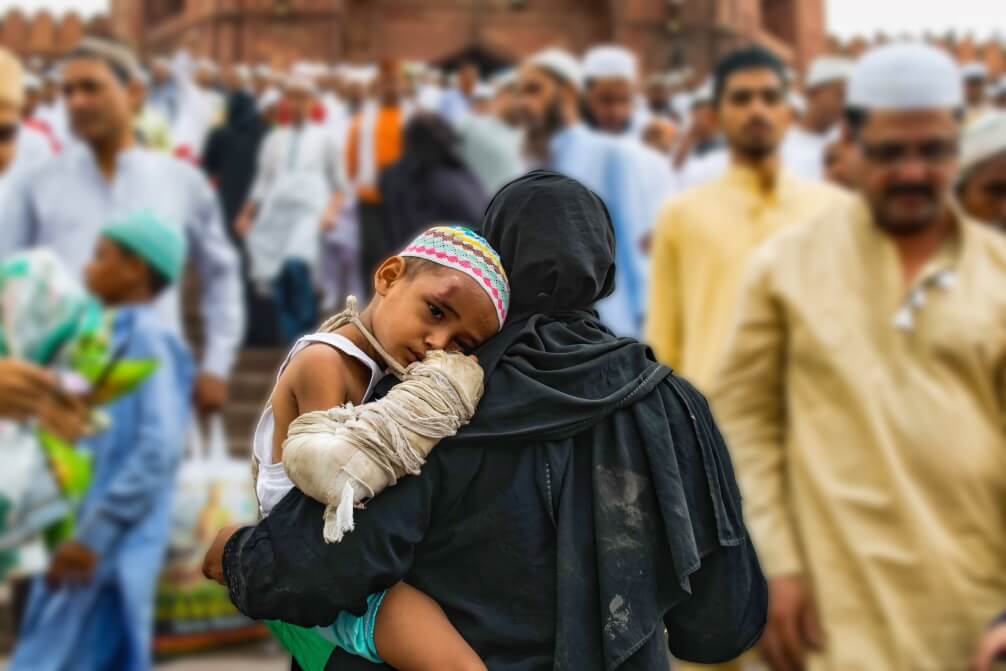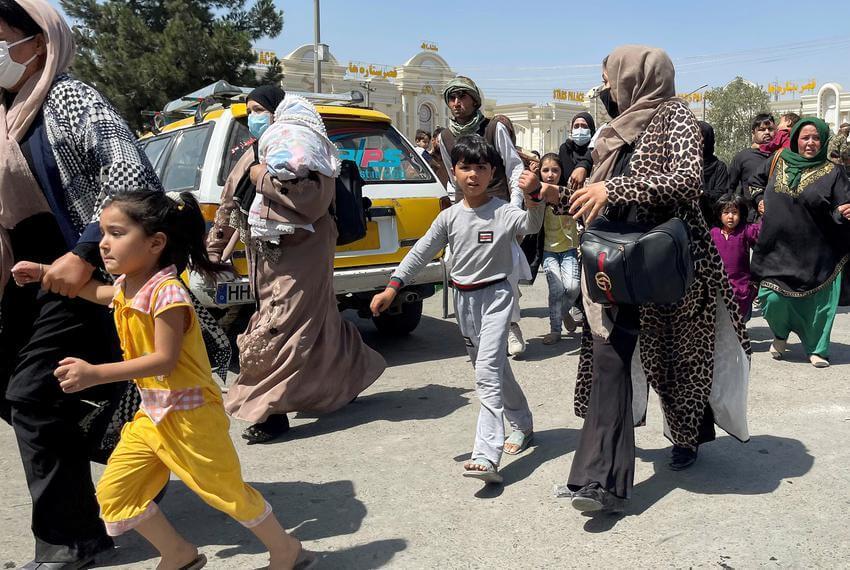JEREMIAH CHAPTER 49 Part 4 (Verses 28-33): No matter what or how self-satisfying we could, we all need God and other people.
Kedar was a son of one of Abraham’s son, Ishmael (Genesis 25:13), and the founder of Arabian people (Arabs). The origin of Hazor is not easy to trace. Some writers like Matthew Henry trace the name to that country that lived in the north of Canaan (Palestine). They cite that after several wars of that country with Israelites (Under the leadership of Joshua), part of its people wandered after escape and settled in the deserts of Arabia (East Of Jordan or Judea) (Judges 4:2 and Joshua 11:10). However, so many other commentators tell us not confuse Hazor with the land that was part of Canaan. They say Hazor simply represents a district (or a kingdom) that had so many clans and tribes united under one King, but with each clan having its own leader or Sheik as Jamieson et al calls them. The tribe of Kedar is specifically picked out by God, but the whole message is for all the Kingdoms as revealed in verse 28 of our reading. Whatever the origin is, the message is to the Arabs who lived a nomadic kind of life, moving from place to place in search of water and pasture for their flock and camels in the east of Judea (28).
According to verse 29, when the Babylonians attack, these people’s tents, flocks, and all their belongings will be taken away, including the camels. Since these people were living a wandering life, camels were greatly used to carry their belongings and tents to wherever they would go. Taking away their camels ultimately means they won’t have the means to carry anything (worst of it, even other belongings would be taken too). They would, upon hearing the great siege around them, shout to themselves that there is terror from all corners or the enemy could be the one who will shout the terror on them they get scared off and easily lose (psychological or a war of words also works). They will think of hiding far away and deep, the same words addressed to Edomites (49:8), but they won’t make it for Nebuchadnezzar who had already smashed the great nations of Judah, Philistine, Egypt, and others had a good war plan of hammering this defenseless nation (29-30).
Up to now, we do not know why God is punishing these people. Let us examine the next verses. According to verses 31-32, these people were peaceful. They lived alone, not associating with other nations or having quarrels with them or even congesting in cities (they lived a scattered life of pastoralism). Their occupation being animal husbandry and finding all their satisfaction in that life, they were regarded as a wealth nation. Note that wealth is not about money, sophisticated equipment or army or gold, but that which makes your heart merry and which offers the satisfaction of your Heart’s desires. Because they had no political quarrels with their neighbors, an observation shared my many commentators; these people did not find a reason to build walls or defenses for their nations. They had good self-confidence that there was no foe or enemy, after all they were not an enemy to anyone. However, this was a lie to their thinking, Nebuchadnezzar, with his greed and a rotten heart could not leave them alone.
According to the writings of Don Flemings, their practice was to raid towns that the Babylonians attacked, and then return to their desert settlements where they themselves were out of the path of the Babylonian forces. This is already a big sin enough to be punished for. Just as for all the other nations that had laid Judah or Israelites during hard times, Kedar was to be punished for exploiting the calamities of other nations. However, the writers of Wiersbe Bible Commentary and Matthew Henry bring in another observation; these two Arab nations were guilty of living at ease, isolating themselves from others, and manifesting pride and arrogant self confidence. This is the exact sin (verse 31). However, God does not punish us for being arrogant and self-confident only as our inherent sins, he punishes us because we have no justification for our arrogance and self-confidence (Simply, we are not right to be so. If we were the right people to be arrogant and self-confident, there would be no sin). This brings me to believe that these people would loot camels and flocks from the suffering nations and say to themselves, aah these are already wandering and falling and we are not doing anything wrong taking our chances.
God was not going to tolerate such a nation that lived a ‘sinless life’, a nation that was externally circumcised (Jeremiah 9:25-26), yet it was not really all that righteous. So the city of Hazor would be desolate after such Babylonian invasion. According to Wiersbe Bible Commentary, between 599-598 BC, the nations of Kedar and Hazor were attacked by Babylonian King, Nebuchadnezzar. As we earlier saw, the complete fall of Jerusalem happened in 587/586. Considering this year, then the destruction of these Kedar and Hazor happened earlier before the fall of Jerusalem, a thing that I am not sure of or even accepting for now (I will have to do a lot of research on this). But since the Kingdom of Israel (the northern) had fallen victim of Assyria in 722 BC, and the might Assyria later got conquered by Babylon in 612 BC, then it is probable that during the years of 605-587/586 of Babylonian wars with Judah, Kedar and Hazor were smashed within that period (ie 599-598 BC). This is not clear too. I have had enjoyed understanding that the judgment against these other nations happened in order of their arrangement in Jeremiah, and thus kedar could have been destroyed shortly after Syria or Damascus (all this needs research).
What is the point today? Read ve
rse 31, “Get up! Attack the ation that is comfortable, that is sure no one will defeat it. It does not have gates or fences to protect it. Its people live alone”. The sin is clear. The nations of kedar and Hazor thought they were not violent and thus had no foe. Their wandering lives and occupation being only animal husbandry in the desert made them believe no one would be attracted by such wealth, but this was a lie. These people kept animals they raid from the struggling nations of Israelites and were sinners too. While they thought they didn’t need God or alliance with others, they committed a sin of self-confidence in what is not true. There are so many among us who think we have done too good to be counted among sinners. Even in church, people are tempted by the so many actions of charity they do and they forget that their righteousness can only come true if they base it on Jesus’ grace. In the end, these are the hard working people who will remind Jesus, ‘we fed the hungry and suffered for the poor’, and he will say, ‘Go away, I never knew you’.
rse 31, “Get up! Attack the ation that is comfortable, that is sure no one will defeat it. It does not have gates or fences to protect it. Its people live alone”. The sin is clear. The nations of kedar and Hazor thought they were not violent and thus had no foe. Their wandering lives and occupation being only animal husbandry in the desert made them believe no one would be attracted by such wealth, but this was a lie. These people kept animals they raid from the struggling nations of Israelites and were sinners too. While they thought they didn’t need God or alliance with others, they committed a sin of self-confidence in what is not true. There are so many among us who think we have done too good to be counted among sinners. Even in church, people are tempted by the so many actions of charity they do and they forget that their righteousness can only come true if they base it on Jesus’ grace. In the end, these are the hard working people who will remind Jesus, ‘we fed the hungry and suffered for the poor’, and he will say, ‘Go away, I never knew you’.
We all need God and people no matter how safe and secure we may seem to be. Our enemy will not let us free because we are non-violent, we need defenses to guard our heart’s thoughts, if not our actions. We need Jesus to forgive us for our lives can never be perfect not to need Him. It is okay to be proud of our straightness, our acts of faith, and how non-violent we could be, but this bragging is meaningful if it reflects its meaning from Jesus Christ’s forgiveness (1Corinthians 1:31). We cannot be that perfect not to be attacked by just ourselves, Kedar and Hazor did not know or pay attention to this lesson. I can never end without inviting you to accept Jesus Christ as your personal Lord and savior. Say this prayer with me: “Oh God, I am sorry I have wronged you. I now see you sent your only son to die for me so I can live forever in happiness. I am a sinner and I regret it all. Please, forgive me Jesus and receive me in your family as your child. Thank you for loving me. In the name of Jesus Christ I pray. Amen”. If you have prayed this prayer, we believe you have been saved. Find a true church near and be part of it.
The Complete You Project



